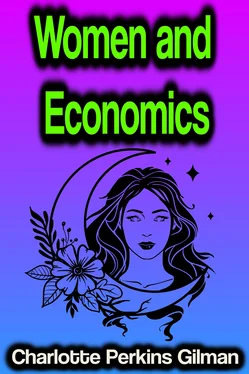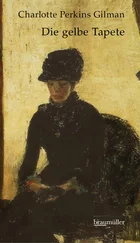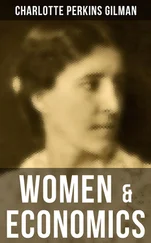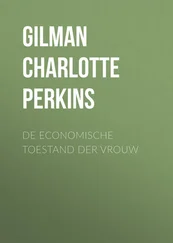Disadvantages of climate, deficiencies in food supply, competition from other species,–all these conditions society, in its organic strength, is easily able to overcome or to adjust. But in our inter-human relations we are not so successful. The serious dangers and troubles of human life arise from difficulties of adjustment with our social environment, and not with our physical environment. These difficulties, so far, have acted as a continual check to social progress. The more absolutely a nation has triumphed over physical conditions, the more successful it has become in its conquest of physical enemies and obstacles, the more it has given rein to the action of social forces which have ultimately destroyed the nation, and left the long ascent to be begun again by others.
There is the moral of all human tales:
'Tis but the same rehearsal of the past,–
First Freedom, and then Glory; when that fails,
Wealth, Vice, Corruption,–barbarism at last.
And History, with all her volumes vast,
Hath but one page. [1]
The path of history is strewn with fossils and faint relics of extinct races,–races which died of what the sociologist would call internal diseases rather than natural causes. This, too, has been clear to the observer in all ages. It has been easily seen that there was something in our own behavior which did us more harm than any external difficulty; but what we have not seen is the natural cause of our unnatural conduct, and how most easily to alter it.
Rudely classifying the principal fields of human difficulty, we find one large proportion lies in the sex-relation, and another in the economic relation, between the individual constituents of society. To speak broadly, the troubles of life as we find them are mainly traceable to the heart or the purse. The other horror of our lives–disease–comes back often to these causes,–to something wrong either in economic relation or in sex-relation. To be ill-fed or ill-bred, or both, is largely what makes us the sickly race we are. In this wrong breeding, this maladjustment of the sex-relation in humanity, what are the principal features? We see in social evolution two main lines of action in this department of life. One is a gradual orderly development of monogamous marriage, as the form of sex-union best calculated to advance the interests of the individual and of society. It should be clearly understood that this is a natural development, inevitable in the course of social progress; not an artificial condition, enforced by laws of our making. Monogamy is found among birds and mammals: it is just as natural a condition as polygamy or promiscuity or any other form of sex-union; and its permanence and integrity are introduced and increased by the needs of the young and the advantage to the race, just as any other form of reproduction was introduced. Our moral concepts rest primarily on facts. The moral quality of monogamous marriage depends on its true advantage to the individual and to society. If it were not the best form of marriage for our racial good, it would not be right. All the way up, from the promiscuous horde of savages, with their miscellaneous matings, to the lifelong devotion of romantic love, social life has been evolving a type of sex-union best suited to develope and improve the individual and the race. This is an orderly process, and a pleasant one, involving only such comparative pain and difficulty as always attend the assumption of new processes and the extinction of the old; but accompanied by far more joy than pain.
But with the natural process of social advancement has gone an unnatural process,–an erratic and morbid action, making the sex-relation of humanity a frightful source of evil. So prominent have been these morbid actions and evil results that hasty thinkers of all ages have assumed that the whole thing was wrong, and that celibacy was the highest virtue. Without the power of complete analysis, without knowledge of the sociological data essential to such analysis, we have sweepingly condemned as a whole what we could easily see was so allied with pain and loss. But, like all natural phenomena, the phenomena of sex may be studied, both the normal and the abnormal, the physiological and the pathological; and we are quite capable of understanding why we are in such evil case, and how we may attain more healthful conditions.
So far, the study of this subject has rested on the assumption that man must be just as we find him, that man behaves just as he chooses, and that, if he does not choose to behave as he does, he can stop. Therefore, when we discovered that human behavior in the sex-relation was productive of evil, we exhorted the human creature to stop so behaving, and have continued so to exhort for many centuries. By law and religion, by education and custom, we have sought to enforce upon the human individual the kind of behavior which our social sense so clearly showed was right.
But always there has remained the morbid action. Whatever the external form of sex-union to which we have given social sanction, however Bible and Koran and Vedas have offered instruction, some hidden cause has operated continuously against the true course of social evolution, to pervert the natural trend toward a higher and more advantageous sex-relation; and to maintain lower forms, and erratic phases, of a most disadvantageous character.
Every other animal works out the kind of sex-union best adapted to the reproduction of his species, and peacefully practises it. We have worked out the kind that is best for us,–best for the individuals concerned, for the young resultant, and for society as a whole; but we do not peacefully practise it. So palpable is this fact that we have commonly accepted it, and taken it for granted that this relation must be a continuous source of trouble to humanity. "Marriage is a lottery," is a common saying among us. "The course of true love never did run smooth." And we quote with unction Punch's advice to those about to marry,–"Don't!" That peculiar sub-relation which has dragged along with us all the time that monogamous marriage has been growing to be the accepted form of sex-union–prostitution–we have accepted, and called a "social necessity." We also call it "the social evil." We have tacitly admitted that this relation in the human race must be more or less uncomfortable and wrong, that it is part of our nature to have it so.
Now let us examine the case fairly and calmly, and see whether it is as inscrutable and immutable as hitherto believed. What are the conditions? What are the natural and what the unnatural features of the case? To distinguish these involves a little study of the evolution of the processes of reproduction.
Very early in the development of species it was ascertained by nature's slow but sure experiments that the establishment of two sexes in separate organisms, and their differentiation, was to the advantage of the species. Therefore, out of the mere protoplasmic masses, the floating cells, the amorphous early forms of life, grew into use the distinction of the sexes,–the gradual development of masculine and feminine organs and functions in two distinct organisms. Developed and increased by use, the distinction of sex increased in the evolution of species. As the distinction increased, the attraction increased, until we have in all the higher races two markedly different sexes, strongly drawn together by the attraction of sex, and fulfilling their use in the reproduction of species. These are the natural features of sex-distinction and sex-union, and they are found in the human species as in others. The unnatural feature by which our race holds an unenviable distinction consists mainly in this,–a morbid excess in the exercise of this function.
It is this excess, whether in marriage or out, which makes the health and happiness of humanity in this relation so precarious. It is this excess, always easily seen, which law and religion have mainly striven to check. Excessive sex-indulgence is the distinctive feature of humanity in this relation.
Читать дальше












